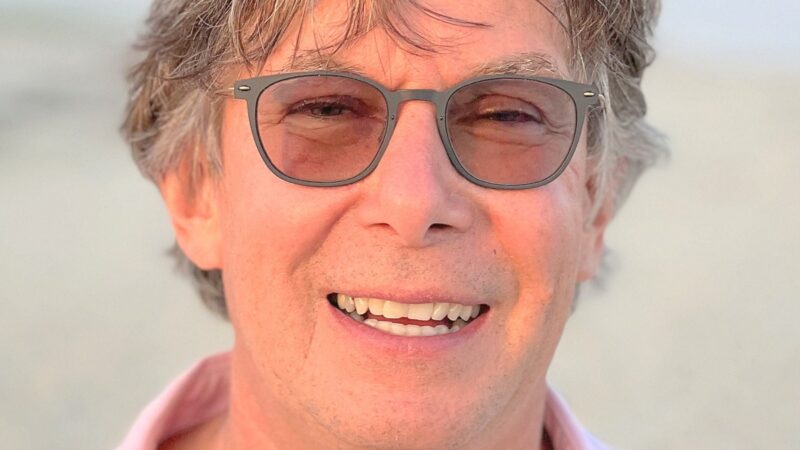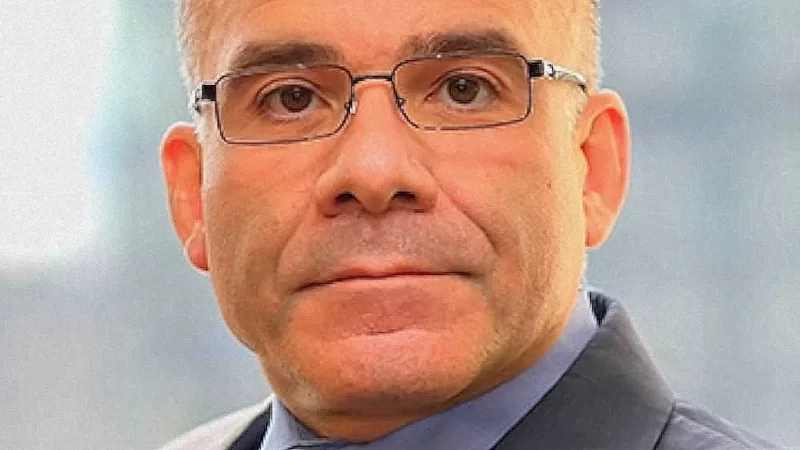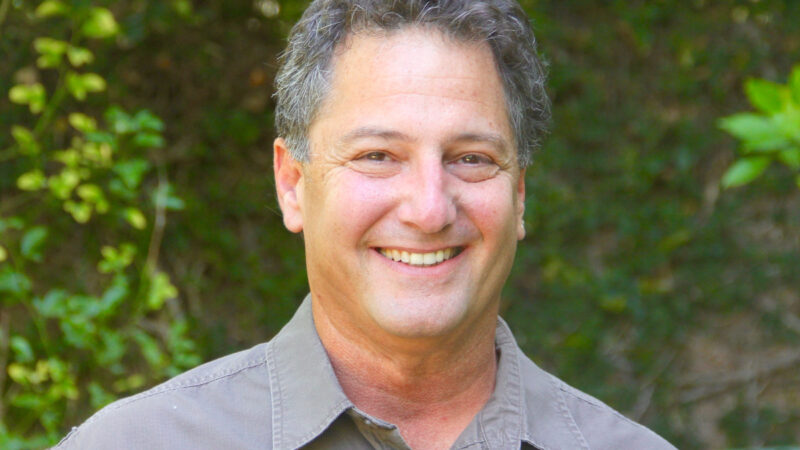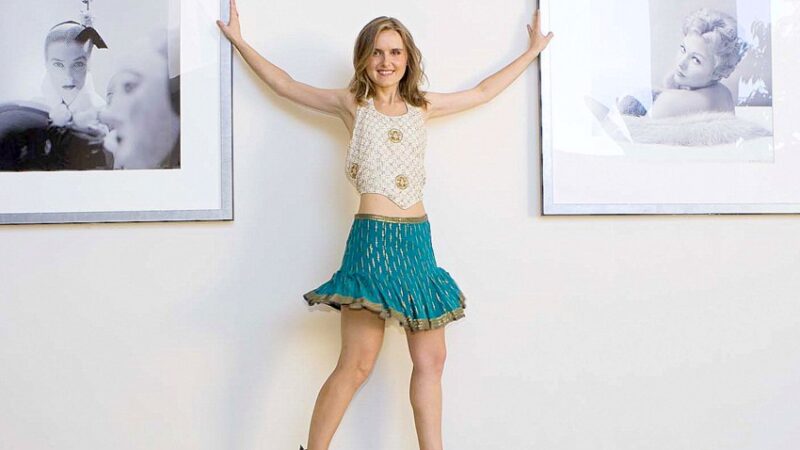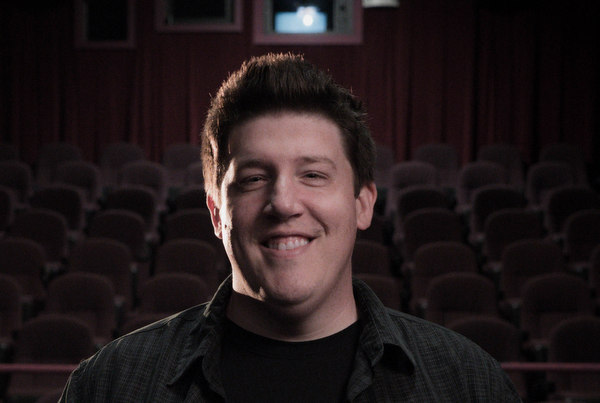
I was born and raised in Owensboro, Kentucky where I live with my wife Katrina and two boys Logan and Connor. I have over 20 years of professional video production experience. In ’07 I began taking filmmaking seriously with my first effort Hallows Eve: Slaughter on Second Street. I then went on to write/direct a short psychological dram called A Mind Beside Itself. 2012 to ’14 I began producing other’s projects such as Bloody Hooker Bang Bang, Three Tears on Bloodstained Flesh, The Book of Dallas and started what has become an annual event in my hometown called Unscripted. It is a short film series to help local/regional filmmakers showcase their projects.
Volumes of Blood if now available on Amazon Prime
In 2014 I created Volumes of Blood which really helped put my work on the map. I then followed it up with VOB: Horror Stories and produced a popular fan film called The Confession of Fred Krueger in 2016. 2017 to now the floodgates opened for producing opportunities where I served and are serving as producer on a myriad of projects such as Lattie, Gnawbone, Close Calls, Butcher the Bakers, Deimosimine, 10/31, Cryptids, The Viral Demon, Maniac Farmer and Angel.
indieactivity: Describe your work as a producer?
PJ: It really varies, depending on what the filmmakers are requiring of me. I’ve dabbled in financing, but that’s not really my area of expertise. Typically, I help with script doctoring, creative consulting, PR and helping find distribution opportunities if not helping to secure a distribution deal.
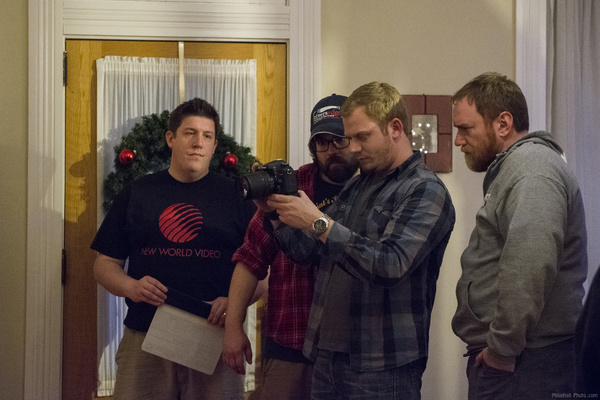
Volumes of Blood: Horror Stories
indieactivity: How did you get into producing?
PJ: I never truly considered myself a full-blown producer until after Volumes of Blood. I was part of that from creation to completion, had my hand in every single department, collaborated with all the filmmakers and department heads. It was a ton of work, stressful, but entirely rewarding once we completed the film and got it out there. At the end of the day it was love of collaboration that drew me into wanting to produce.
John William Holt reveals inside of Volumes of Blood: Horror Stories
indieactivity: Did you study producing?
PJ: I went to college for video production. Honestly, I started out with writing and directing. It eventually became a natural transition over to producing as my network and contacts grew. Especially in the area of marketing and promotions, which lead to me serving as an executive producer on a multitude of films over the last year.
indieactivity: How do you choose a project to produce?
PJ: There’s a lot I consider when choosing a project. Is it in my wheelhouse? Does it offer something new? Does it have anything that goes against my personal ideas? Is it something ultimately marketable? Is the filmmaker serious and passionate about the project? There’s a lot of things I hash out with myself and creators of the project before coming onboard.
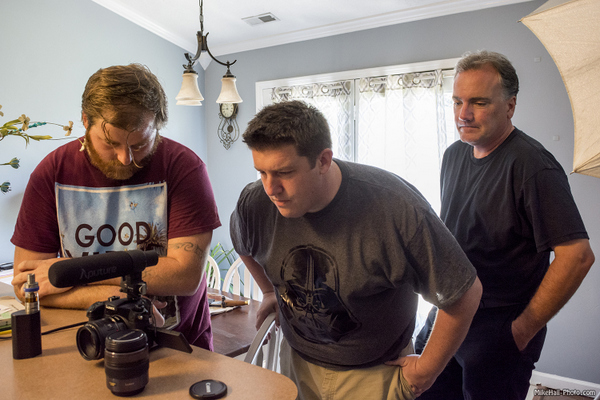
VoB: HS – Post Credit Scene
indieactivity: Describe a few wrong impressions about producing?
PJ: You stand around in the corner on your cell phone while everyone else is working. To some degree there can be truth to that because when you’re on set, in the moment, your main job is to facilitate and make sure things are working together. By the time you’ve reached set a bulk of your work has already been completed. With VOB: Horror Stories, my producing partner Eric and myself had already done all the leg work to make sure the location was secured and open, the directors had the right crew, actors and the like set up to pull off their vision for the sequence. At that point we were there to guarantee the film would complete shooting and if anything fell through, it was our job to problem solve to fill any positions or fix any issues.
indieactivity: Do you take courses to improve your craft?
PJ: I don’t take courses, but I watch tons of videos about producing and read articles about producing to make sure what I’m offering is on par and I’m doing all I can to help the filmmakers to the best of my ability and availability.
Caleb Shore on his role as Boone in Volumes of Blood: Horror Stories
indieactivity: What books do you read?
PJ: Truthfully, I don’t read many books. The last book I committed myself to reading was The Slasher Movie Book by Justin Kerswell. I usually read HorrorHound and Rue Morgue magazines or websites like Arrow in the Head, Dread Central, Bloody-Disgusting, Pop Horror and the like.
indieactivity: How do you keep in shape as a producer?
PJ: Communication is the key. Especially when it comes to marketing in the indie field. I always do my best to touch base with the directors and to see if they’re on schedule, do they have any screenshots or exclusive scenes available. Things of that nature.
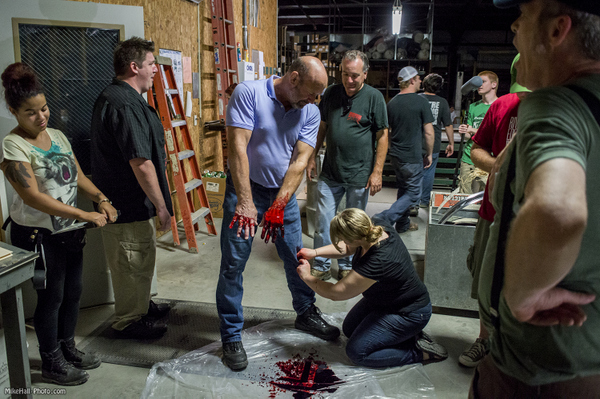
Volumes of Blood: Horror Stories
indieactivity: What do you look for when you choose an actor, writer or director?
PJ: Are they capable? What have they done previously? Do they have any interviews to show their personality? In a lot of ways, it’s like a pre-job interview where you want to feel out who’s right for the job and who’s full of shit. I’m all for working with serious first-time directors and actors and usually even those guys have some kind of work to show off. I’m getting more and more picky about choosing actors because I want to work with the best of who’s out there.
That’s not to say the actors I’ve worked with up until now have sucked, but I’m homing in on certain skill sets and nuances that I feel make stronger actors. The same with directors. You can always see who’s good based on the vision of their previous work. Good and bad can sometimes be a personal taste, but if a filmmaker’s project speaks to you then it makes them more palpable to work with.
indieactivity: How do you prepare for a project?
PJ: I always try to read the script. If I’m coming in late in the game I try to watch a work print or get a feel for the project by asking a ton of questions. Sometimes if I like a filmmaker’s passion and enthusiasm for the genre or the project, especially if we click, then I’ll come onto a project sight unseen because I know I’ll enjoy working with that person.
indieactivity: What thing or situation helps your work on a production?
PJ: Communication, which admittedly I can fall short on occasionally, but definitely good communication. Organization is key, especially if you have a large and heavily involved production that requires a ton of help and special effects work. Also learning what not to do next time is key. Most sets are like that. Learning the pitfalls and doing your best not to repeat them on the next project or set.
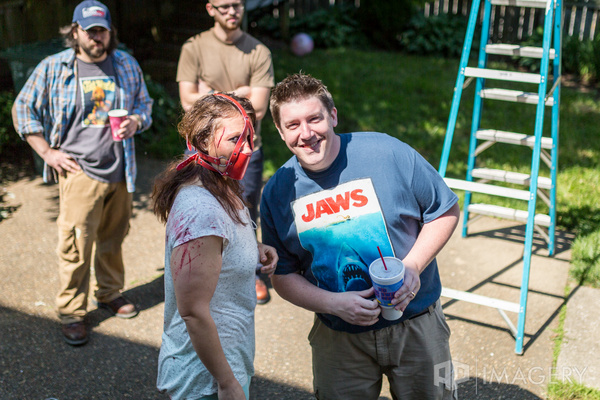
indieactivity: How do you advice actors to find projects?
PJ: Find roles outside your comfort zone. There’s nothing wrong staying in one genre or one type of character, but getting outside the box is where we really learn the valuable lessons and strengthen our abilities.
indieactivity: How can filmmakers finance their projects?
PJ: That is always an enigma for a lot of the filmmakers I work with. We’ve all found the financing for projects in different ways or avenues because there’s no real science to it. At least not here in the Midwest. First time filmmakers should try crowdfunding, I think that’s a great starting point. As you grow your projects coming up with inventive or new ways of finding money needs to be attempted.
We funded VOBHS entirely through sponsorship dollars by using product placement. It was different, but it worked. However, we’re going to be putting packages together for potential investors as we go into Devil’s Knight: VOB3. The budget is more substantial and product placement alone can’t sustain our production needs.
indieactivity: What do you want from a director during production?
PJ: EVERYTHING! Seriously though, I expect nothing less than their A game. I want enthusiasm and love for the project. I want them to have a vision for the project and be open minded enough for give and take. The directors and crew I worked with on VOB: Horror Stories did just that and truthfully it was the best crew I’ve worked with to date on a project where I was present conception to completion.
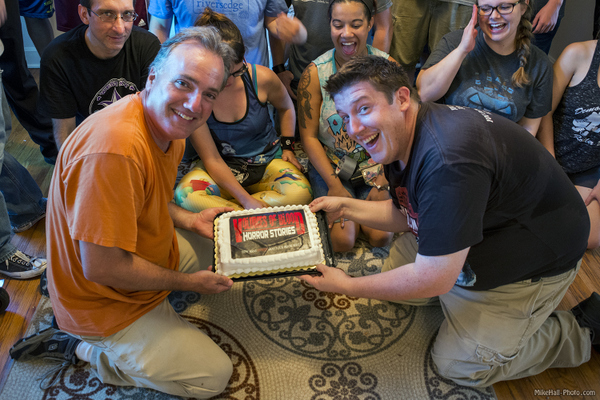
Feeding Time – Day 2 – Sunday
indieactivity: How do you prefer to work with a director during a production?
PJ: I try not to micromanage because I want them to put their mark on the film. I want them to make it theirs. On the flip side, birthing and completing a film takes more than one person; so they need to be willing to make the appropriate changes or adjustments to the script, their vision or both in order to make the best film possible. Like I said, I love collaboration and as long as the director has that mindset, making the film is a fun and engaging process
indieactivity: Do you get offers from overseas?
PJ: I haven’t yet and don’t know if I ever will, but I’m interested in the challenge. However, if those opportunities never present themselves I’ll be content with that I have done and am doing.
indieactivity: What can an actor do to get into the industry?
PJ: Work, work, work. Acting is much like anything else. The more you do it, the better you’ll get at it. Take interesting and engaging roles, roles outside the norm of what you might usually get offered. Keep your head on straight. Every artist I’ve ever met, myself included, has an ego. It comes with the territory. It’s how you handle your ego that will make others want to work with you or not. If you’re a pain in the ass or hard to work with, that will get around quick and no one will want to work with you. Wait until you have a net worth and then you can let your ego out of the cage.
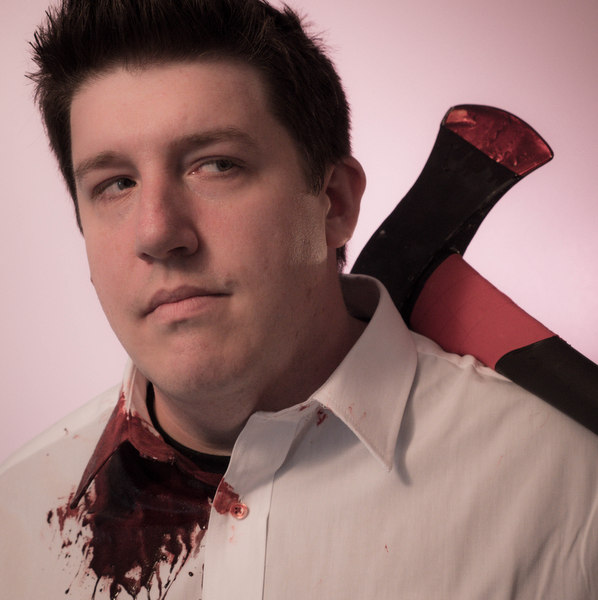
indieactivity: Who is your favorite producer?
PJ: Probably Scott Mosier.
indieactivity: Why?
PJ: I’m a huge fan of Kevin Smith and he’s produced nearly all of Kevin’s projects. Any guy that helps him make his projects is good in my book.
indieactivity: What advice do you have for actors?
PJ: Take as many projects from varied budgets and genres as you can. Most importantly keep your ego in check.
indieactivity: Briefly write about your career?
PJ: I guess I did that in the biography section. I’d rather talk a little about the filmmakers I’ve worked with. The Volumes of Blood franchise has become an unexpected “hit” for myself and those who worked on it. It’s not a game changer or a household name by any stretch of the imagination, however, it has opened a lot of doors for those who’ve worked on the films. It gave me a chance to work with some of my talented filmmaker friends like Jakob Bilinski, Jon Maynard, Justin M. Seaman, Sean Blevins, Nathan Thomas Milliner among others.
My film family has grown exponentially from working with Chris Bower, John Holt, Barbie Clark, Austin Madding, Amber Langston, Kiaya Young, Logan Abell, La’Kesha Michelle and others. I’ve worked with some phenomenal acting talent like Julie Streble, Caleb Shore, Shelby Tillman, Moses J. Moseley, Kevin Roach, Jim O’Rear, Cindy Maples, Jay Woolston, Jason Crowe, Kevin Clark, Roni Jonah, Gerrimy Keiffer, Kevin Arnold, Kristine Renee Farley and almost too many others to mention here. I’ve gained new friend and working relationships with Rocky Gray and Zane Herschberger.
It’s because of those films I’ve been given the opportunity to meet and work with filmmakers Tyler Amm, Richard Stringham, Darrin Means, Jeremy Wechter, Tory Jones, Brett Dejager and look forward to hopefully working with them on future projects. We have a card game based on the VOB cinematic universe dropping March 1st and are in early development on VOB3 with Petri Entertainment’s Andy Palmer and Warner Davis. VOB: Horror Stories is now available thru video on demand at Amazon, Vudu, iTunes, Google Play and VHX. It’s honesty been an incredible, surreal ride and if it ended tomorrow I’d still be satisfied with the journey.
Interview with Immediate Family Film Producer-Musicians Greg Richling, and Jonathan Sheldon
Principals of the new Film & TV music-driven Documentary Production Company Pfonetic


